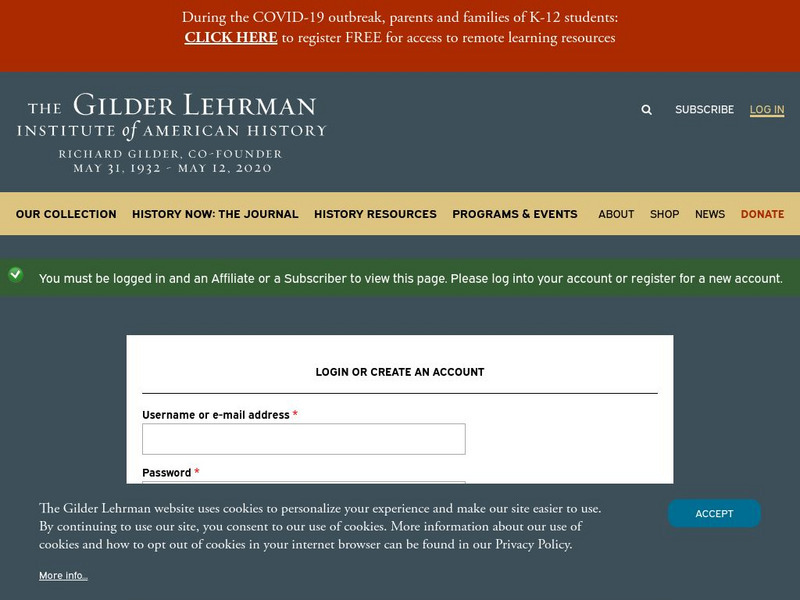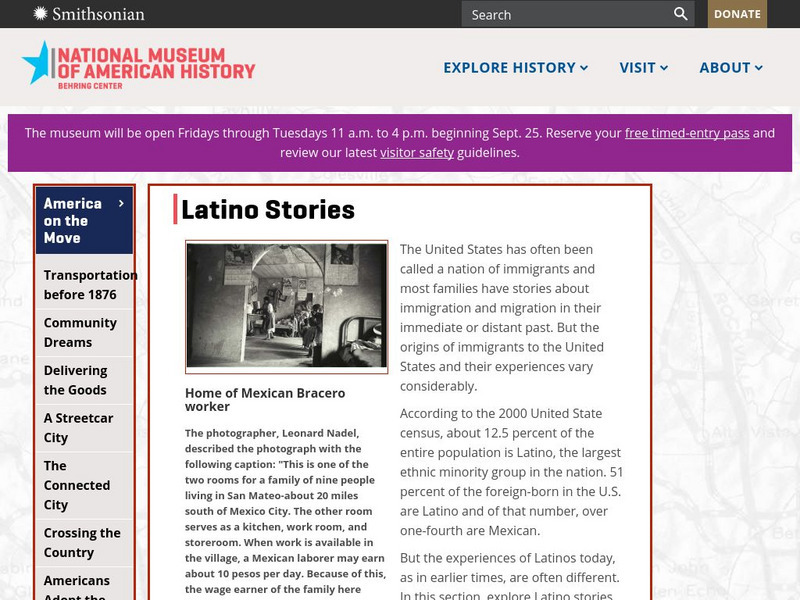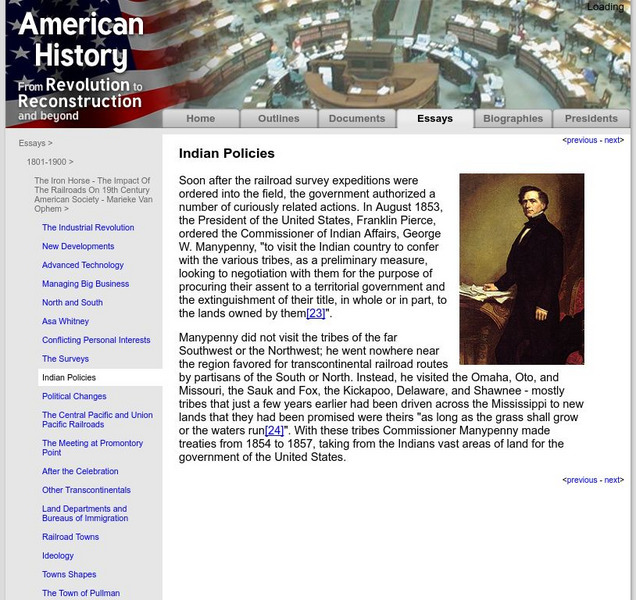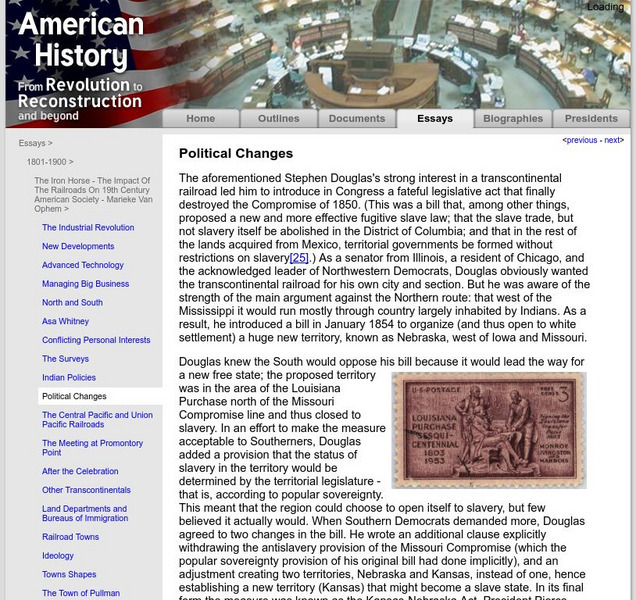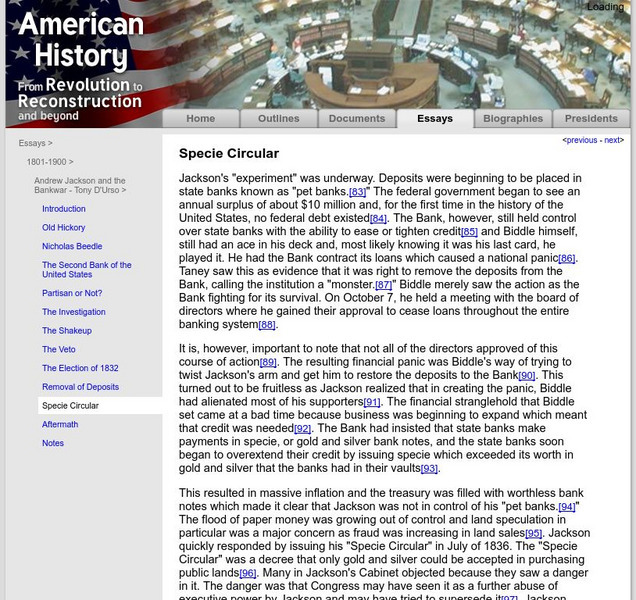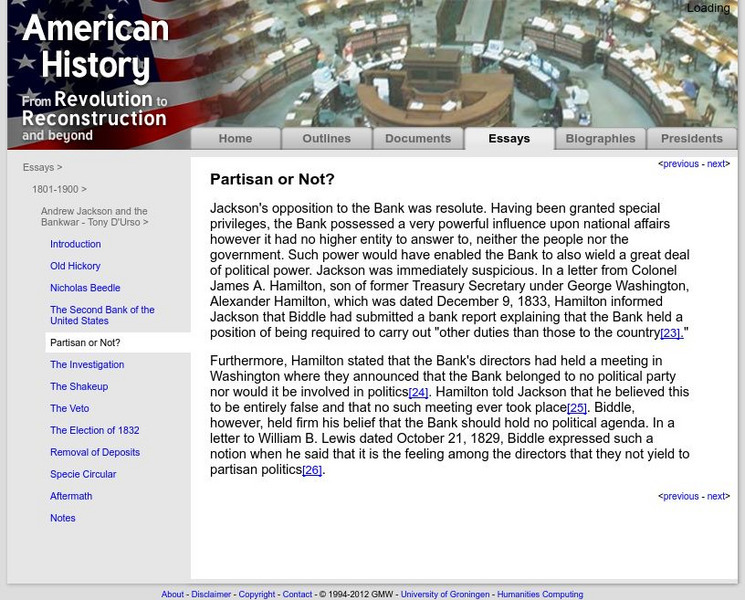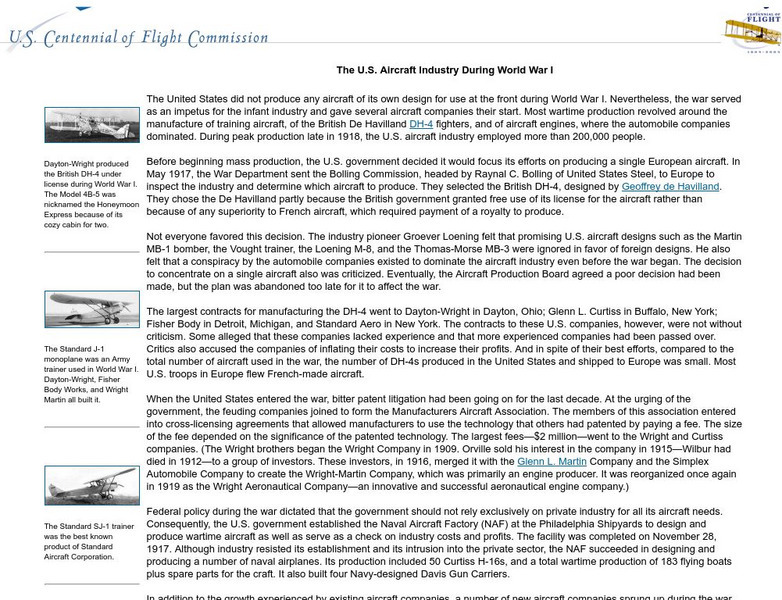Gilder Lehrman Institute of American History
Gilder Lehrman Institute: History Now: Every Citizen a Soldier: World War Ii Posters on the Home Front
An article from the quarterly journal, History Now, discusses the importance of posters in World War II in encouraging support in the United States for the war. See examples of posters and read about how they emphasized the role of every...
Gilder Lehrman Institute of American History
Gilder Lehrman Institute: History Now: The Early Republic
[Free Registration/Login Required] Read about the tremendous growing pains faced by the new republic of the United States from the presidency of George Washington up to the election of Thomas Jefferson. Find out about the domestic...
Gilder Lehrman Institute of American History
Gilder Lehrman Institute: History by Era: Slavery and Anti Slavery
[Free Registration/Login Required] An excellent essay explaining the roots of the anit-slavery movement in the United States in the early 1830s and its evolution over the next twenty-five years. Read about the abolitionists, both white...
Smithsonian Institution
National Museum of American History: A Nation of Immigrants: Latino Stories
While in the year 2000 Latinos were the largest ethnic minority in the United States, their experiences are by no means the same. Explore stories of Latino immigration and migration and see some of the complexities of immigration.
University of Groningen
American History: Essays: What Do the Netherlands and the Us Have in Common?
Essay on the commonalities between the Dutch and U.S. The author points to political ideology and humanistic beliefs that unite the two countries.
University of Groningen
American History: Essays: The First Dutch Settlers
Read about the Dutch colonization of the Hudson River Valley in this comprehensive essay about the Dutch in America. Pages 3-7 deal with the Dutch colonies.
University of Groningen
American History: Essays: Henry Hudson: An Englishman in Dutch Service
Essay about the beginnings of Dutch exploration into the New World. The author describe the journey of Englishman, Henry Hudson, as he sailed reaching the north Atlantic coast of America, what is now Newfoundland and explored the river...
University of Groningen
American History: Essays: The Towns of New Netherland
Essay on the growth and development of towns settled by the Dutch in and around present day New York City. The author provides interesting details about leaders and landmarks.
University of Groningen
American History: Essays: The End of New Netherland
Essay on the fight between Dutch and British colonial powers over New Amsterdam which eventually resulted in British dominance and the renaming of New Netherland to New York.
University of Groningen
American History: Essays: The Dutch in British America
Essay on the plight of New Netherland Dutch colonists in the one hundred years after the British took control of Dutch colonies in America.
University of Groningen
American History: Essays: Revolution
Essay on the Dutch alliance with pro-Revolution American colonists. Outlines reasons for the sentiment to support American independence as well as strategy involved.
University of Groningen
American History: Essays: The Founding of the Last 'Colonies'
Essay on the last mass emigration of Dutch citizens from the Netherlands in 1800s who came for economic and religious reasons and settled in Michigan, Iowa and Wisconsin.
University of Groningen
American History: Essays: Modern Emigration
Essay on Dutch emigration in modern times. Rather than the mass emigration that occurred during the 19th Century, emigration during the 20th Century to U.S. and Canada was on more of an individual basis.
University of Groningen
American History: Essays: Modern Times
Essay on the contemporary relationship between the Dutch and U.S. The author discusses political, economic and cultural flow between the two countries.
University of Groningen
American History: Essays: The Iron Horse: Indian Policies
From a lengthy essay on the history of the railroad in the United States. This section briefly explains how Commissioner George W. Manypenny visited native tribes in 1853 in order to negotiate treaties that would take away their land so...
University of Groningen
American History: Essays: The Iron Horse: Political Changes
From a lengthy essay on the history of the railroad in the United States. This section describes the dramatic political changes that took place with the passage of the Kansas-Nebraska Act in 1854. This led to the formation of the...
University of Groningen
American History: Essays: The Iron Horse: The Railroad Unions
From a lengthy essay on the history of the railroad in the United States. This section lists a number of the railroad unions that formed in the latter half of the 19th century, and what they stood for.
University of Groningen
American History: Essays: Manifest Destiny: The New Manifest Destiny
While many thought that the doctrine of Manifest Destiny had spent itself when Americans reached the Pacific Ocean, it could also be seen to extend beyond the shores of the United States. For example, Hawaii and Alaska were acquired later.
University of Groningen
American History: Essays: Manifest Destiny: To the End of Time
Explains what the term 'Manifest Destiny' meant during the expansion of the frontier as the United States grew and consolidated its borders.
University of Groningen
American History: Essays: Specie Circular
This site from the University of Groningen provides a description of the Specie Circular, a decree that only gold and silver could be used when purchasing public lands.
University of Groningen
American History: Essays: Andrew Jackson and the Bankwar: The Veto
Despite prudent advice to the contrary, Nicholas Biddle, head of the Second Bank, applied to recharter the bank on the eve of Andrew Jackson's bid for re-election in 1832. Once elected, Jackson vetoed the request.
University of Groningen
American History: Essays: Andrew Jackson and the Bankwar: Partisan or Not?
President Andrew Jackson was concerned about the powers of the Second Bank from the beginning, and suspected there was a hidden political agenda, which Nicholas Biddle, head of the bank, denied.
Gilder Lehrman Institute of American History
Gilder Lehrman Institute: Age of Jefferson and Madison
[Free Registration/Login Required] After a brief description of Thomas Jefferson's and James Madison's contributions to the early ideology and government of the new United States in their authorship of the Declaration of Independence and...
Other
U.s. Centennial of Flight Commission: The u.s. Aircraft Industry During Wwi
A good essay on the development of the airline industry in the United States as a result of World War I. Many companies worked on airplane design, but few survived after the war.



